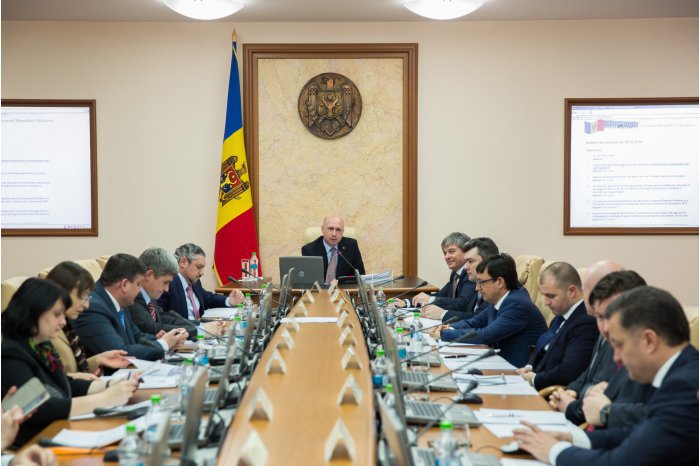Moldovan cabinet approves amendments, supplements to enhance justice independence
17:56 | 06.04.2016 Category: Political
Chisinau, 6 April /MOLDPRES/-The cabinet of ministers today approved a draft law amending and supplementing the Constitution, according to which the independence, impartiality and transparency of the Moldovan judiciary system shall be enhanced. The draft is to be submitted to the Constitutional Court (CC) for approval and then to the parliament for examination.
The Justice Ministry suggests that judges be appointed as the law provides, “up to the age limit, by the Moldovan president and at the proposal of the Superior Council of Magistrates (CSM)”. Judges are currently being appointed for a five-year term. Based on their activity during this term, thy could be subsequently appointed until they reach the age limit.
As for international standards on the appointment of judges and setting their activity-mandate, basic principles on the independence of the justice system state that the judge “shall have their mandate guaranteed until their obligatory retirement age or until it expires”. Judges are appointed for life, until they reach a certain age limit, in most of the countries.
The draft law also amends the Constitution and grants the president the right to “reject CSM’s candidature just once”. Currently, this provision is included in the law on the judge statute. Making it part of the Constitution would guarantee a minimal influence of the government on the appointment of judges.
Another amendment refers to the appointment and selection of judges at the Supreme Court of Justice, who shall be appointed by the president at the proposal of CSM.
According to the amendments, judges are only endowed with functional immunity, valid during criminal investigations or actions/inaction in the exercise of power. In this context, passive corruption, influence peddling, bribery or similar offences are not considered as actions made during the legal exercise of power and cannot benefit from immunity.
The Justice Ministry also suggests the prosecutor general be excluded from CSM and its members be appointed for a six-year term, without being able to hold two mandates. The draft also proposes that representatives of the civil society, with law work experience, be part of the CSM.
The government has also approved a draft law amending and supplementing the Constitution’s provisions on the Prosecutor General’s Office. The draft sees that the Prosecutor General’s Office shall be included within the judicial authority. It also provides for the unequivocal juridical statute of the Prosecutor General’s Office as public institution. The prosecutor general will be appointed by the president, at the proposal of the Superior Council of Prosecutors.
According to the Justice Ministry, empowering the Superior Council of Prosecutors with the right to select the candidate to the position of prosecutor general is meant to maximally reduce the political influence on the selection procedure.
(Reporter V. Bercu, Editor L. Alcaza)

